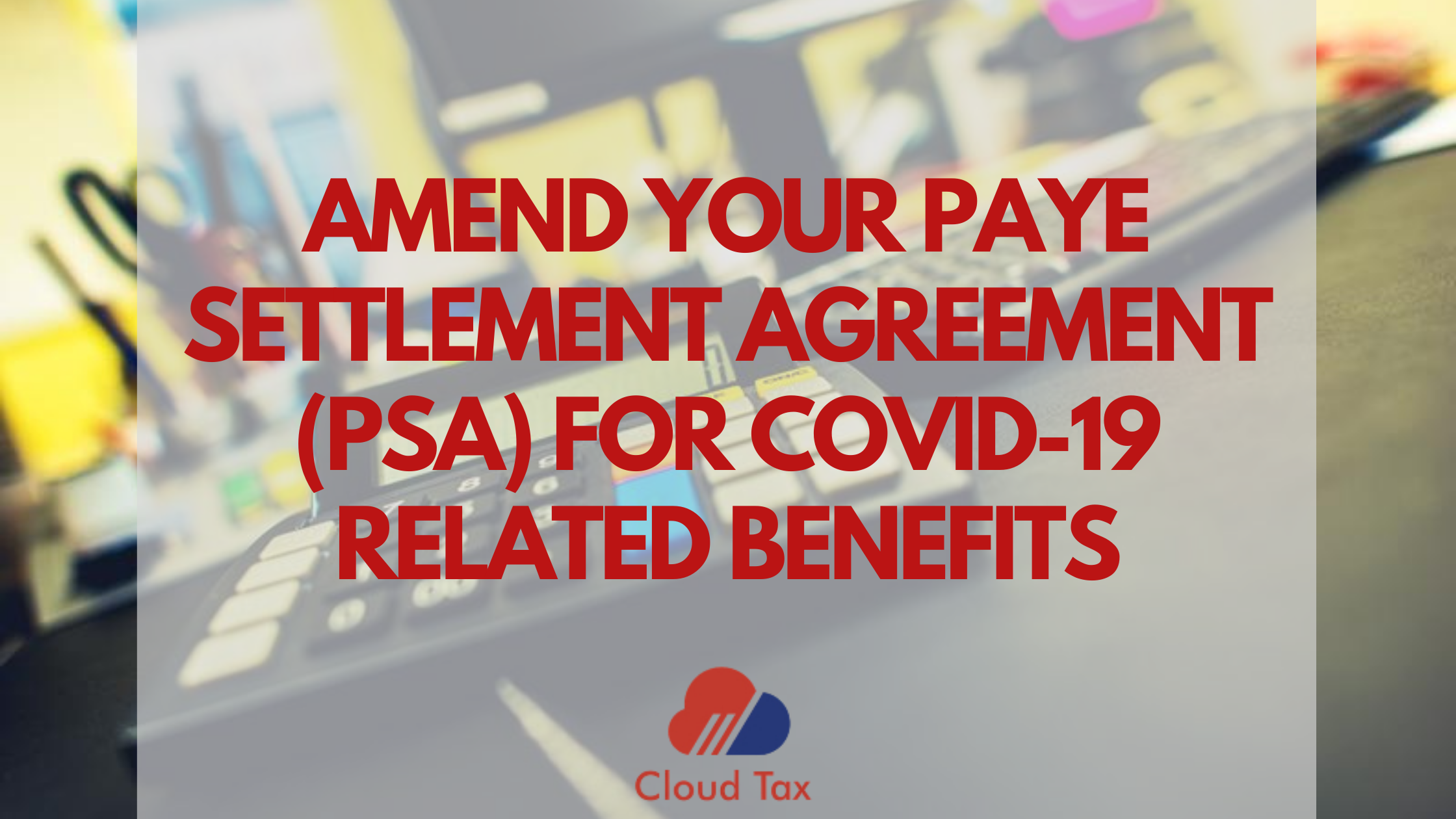A PAYE Settlement Agreement (PSA) enables an employer to meet the tax on certain benefits and expenses on the employee’s behalf. This can be useful to preserve the goodwill nature of a benefit.
Not all benefits are suitable for inclusion within a PAYE Settlement Agreement (PSA). To qualify a benefit must fall into one of the following categories:
1) the benefit is minor;
2) the benefit is provided irregularly; or
3) the benefit is provided in circumstances where it is impractical to apply PAYE or to apportion the value of a shared benefit.
A PSA can be used, for example, to meet the tax liability on the provision of an annual party that falls outside the associated tax exemption. Benefits that are exempt from tax do not need to be included.
The tax and National Insurance payable on items included within a PAYE Settlement Agreement (PSA) for 2020/21 must be paid by 22 October 2021 where payment is made electronically, and by 19 October 2021 otherwise.
An enduring agreement
Once as PAYE Settlement Agreement (PSA) has been set up, it remains in place until cancelled or amended by the employer or by HMRC. Existing PSAs should be reviewed each year to ensure that they remain valid.
Amending the PSA
If a PSA needs to be altered, this must be done by 6 July following the end of the tax year to which it relates.
The Covid-19 pandemic changed the way in which employees worked and may have changed the mix of benefits that were provided. Where a PSA needs to be amended in light to take account of Coronavirus-related benefits provided in the 2020/21 tax year, this must be done by 6 July 2021.
Normally, HMRC would issue a new P626 (the PSA) when a PAYE Settlement Agreement (PSA) is amended. However, where amendments to the PSA relate solely to Covid-19 changes, rather than issuing a new P626, they will instead issue an appendix to the existing PAYE Settlement Agreement (PSA) .
Covid-19 exemptions
To remove the tax charge that would otherwise arise, a number of limited-time exemptions have been introduced in respect of Coronavirus-related benefits. These include an exemption for the provision of Coronavirus antigen tests, and also any reimbursement of the cost of the test where this is initially met by the employee.
Where employees have worked at home during the Covid-19 pandemic and have bought equipment to enable them to do so, any reimbursement by the employer is also tax-free, as long as the provision would fall within the exemption for accommodation, services and supplies if provided directly by the employer.
Coronavirus-related benefits that fall within the time-limited exemptions do not need to be included within a PSA. However, consideration may be given to adding any non-exempt benefits made available to employees during the pandemic to the PSA (for example, antibody tests), as long as they meet the qualifying conditions for inclusion.
A new PSA
If a PSA is not already in place, should an employer wish to set one up to deal with taxable benefits provided as a result of the Covid-19 pandemic, if the PSA is to have effect for 2020/21, it must be agreed with HMRC by 6 July 2021.
For more information on Amend your PSA for Covid-19 related benefits, Book a Free Consultation!

